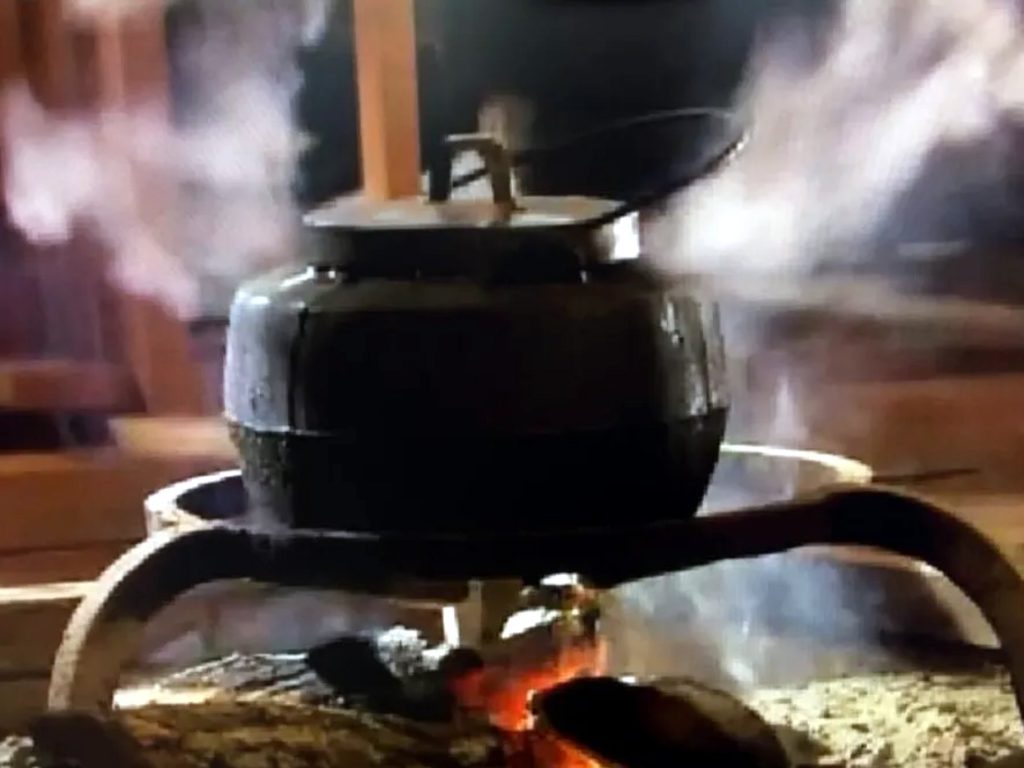
The iron kettle putting on the hearth is humming. The family members are so busy that they have no time to warm themselves by the fire. This was the scene of December’s hustle until not so long ago. There are many tanka and haiku poems that depict the month of December. Among them, I particularly like the following haiku by Kobayashi Issa: ‘Yoni tsurete Shiwasuburisuru Kusaya kana.’ The meaning is something like, ‘It’s a poor thatched house that acts like it’s busy even though it’s not even busy, in keeping with the world.’
Even in poems about December, Matsuo Basho’s ‘Tabine yoshi Yadoha shiwasuno Yuuzukuyo’ conveys a more elegant sentiment. It means, ‘It’s nice to have a bed during a trip like this. I can clearly see the waxing moon in December from a good inn.’ Basho had many disciples all over the country, and while traveling in December, which would normally be a painful sleep, he was entertained at a disciple’s home and spent a nice night with a clear view of the December moon. This is a phrase that expresses gratitude for the people who are here.
After Christmas, the scenery has transformed entirely, revealing glimpses of Japan’s original landscapes scattered here and there.
囲炉裏にかけられた鉄瓶がパカパカブツブツ唸っています。家人達は囲炉裏にあたっている暇もないほど立ち働いています。一昔前までは師走はこんな風景でした。師走を詠った短歌や俳句は沢山あります。その中でも小林一茶の次の句は好きな句です。「世につれて 師走ぶりする 草家哉」。 意味は「世の中の様子につられて師走のように忙しくする草家であることよ」くらいの意味です。「草家」は草葺きの家の事で、貧しくて忙しくするようなこともない師走なのに、世間の空気につられてそわそわとしている句です。
同じ師走を詠った句でも、芭蕉の「旅寝よし 宿は師走の 夕月夜 」は、「こんな旅の途中の寝床は良いものだ。良い宿で師走の上弦の月がよく見える」と言う意味で、実に優雅な句です。全国至る所に沢山の門人がいて、師走の旅の途中にも、「旅寝」は辛いものという歌や句が多いですが、門人の家でもてなされて、師走の月もよく見える良い夜を過ごしているという感謝が込められた句です。
クリスマスが終わったら一転、日本の原風景がそこここに見え隠れする風景に変わりました。
